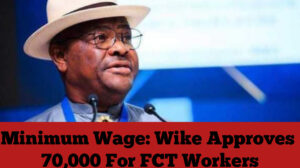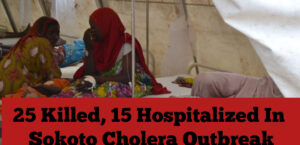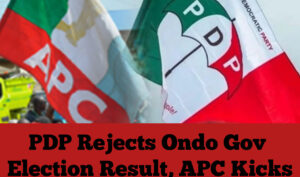
As controversies continue to trail the Federal Government’s recent removal of electricity subsidy for over 1.8million customers categorised to be on Band A feeders, members of the Organised Private Sector has insisted that the hike must suspended for review.
As such, plans are to meet President Bola Tinubu on the matter.
The OPS, including the Nigerian Association of Chambers of Commerce, Industry, Mines, and Agriculture and the Nigeria Employees Consultative Association, disclosed this while reacting to The PUNCH enquiries on Sunday.
Members of the OPS had earlier rejected the tariff hike and called for the suspension of the subsidy removal, saying this would be discussed at the planned meeting with Tinubu soon.
Last week, subsidy on electricity was withdrawn completely from the tariff payable by power consumers in the Band A category, who the Nigerian Electricity Regulatory Commission said constitute about 15 per cent of the total number of power users across the country.
The NERC announced the hike in the electricity bill at a press briefing in Abuja, adding that those affected would now pay a tariff of N225 per kilowatt-hour, up from the previous rate of N68/kWh, representing about 240 per cent increase. The government declared that the decision took effect from Wednesday last week.
But the Nigeria Labour Congress, as well as the Trade Union Congress kicked against the hiked tariff for power users, regardless of the band they belong to.
They argued that the hike in tariff would send manufacturers out of business, worsen inflation, and stifle small and medium enterprises, stating that no place in Nigeria enjoyed up to 20 hours of power supply daily.
Band A power users are those who get up to 20 hours supply of electricity daily and paid about N68/kWh before the implementation of this latest order.
The Vice Chairman of NERC, Musiliu Oseni, told journalists in Abuja that the government could not sustain subsidy on electricity and had to devise ways to cut down the about N2.9tn that would be spent on power subsidy this year.
He explained that customers on Band A represented 15 per cent of the over 12.82 million registered electricity consumers across the country, adding that the commission had also downgraded some customers on this band.
However, Speaking with The PUNCH on Sunday, the Director-General of Nigeria Employers’ Consultative Association, Mr Adewale-Smatt Oyerinde, said, “The Organised Private Sector of Nigeria is planning to engage the presidency soon to address the issue of electricity tariff hike.”
Also speaking with one of our correspondents on Sunday, the President of NACCIMA, Mr Dele Oye, reiterated the need for stakeholders’ engagement.
Oye said there was no proper preparation by the NERC and the power distribution companies before deployment.
“We need to have a stakeholders’ engagement, which NACCIMA is willing to hold, as it seems there was no proper serious preparation by the NERC and the DisCos before deployment. All the actions so far by the NERC and the DisCos have been reactionary. We appeal for suspension pending the stakeholders’ engagement.” he said.
Also speaking, the Director General of the Nigeria Employees Consultative Association, Mr Wale Oyerinde, said, “The Organised Private Sector is planning to engage soon.” Oyerinde said.
Adelabu threatens sanctions
Meanwhile, the Minister of Power, Adebayo Adelabu, on Sunday, has hinted that there is no going back on the tariff hike, while also declaring that the supply of electricity for about 20 hours daily to consumers in Band A category must be achieved by power distribution companies.
He said failure to achieve this would lead to severe consequences for the power distributors, stressing that this was due to the recent hike in tariff payable by the about 1.9 million customers on Band A.
Power minister, in a statement issued in Abuja on Sunday by his Special Adviser, Strategic Communication and Media Relations, Bolaji Tunji, also announced that testing had commenced on the 700 megawatts Zungeru Hydropower Plant.
Speaking on the recent tariff increase, the minister explained that the increase was only for consumers in the Band A category, which was only 15 per cent of consumers, while other customers would continue to enjoy the government subsidy.
The minister said the sector had been decentralised and that consumer protection was vital.
He was quoted as saying, “20 hours must be achieved as promised, and anything else would attract consequences for the distribution company”.
Adelabu said the Federal Ministry of Power intends to provide a cost-reflective tariff and gradually migrate other consumers to the Band A grade over three years.
According to him, these consumers would enjoy 20 to 24 hours of electricity per day, and that, realistically, it was cheaper at N225/kWh than to use diesel or PMS on power generating sets.
Adelabu said the sector currently needed to be more attractive to investors.
“There is an infrastructure deficit, which includes the availability of gas and the generation, transmission and distribution of power. These must be addressed for the sector to grow and benefit Nigerians.”
He also mentioned that the current metering gap needed to be bridged and that all the issues stated could only be addressed by the generation of funds.
Benin DisCo apologies
Meanwhile, contrary to the directive of the NERC, the Benin Electricity Distribution Company confirmed on Sunday that it failed to supply 20 hours of electricity in 13 Band A feeders on April 5.
The BEDC, while apologising to its customers for not meeting up with the required minimum service level of 20 hours on the 13 feeders, said it was taking steps to ensure consistent power supply in the affected areas.
In an announcement on Sunday, it was observed that some of the feeders had between 12 to 19 hours of power supply, which was below the minimum standard for Band A feeders.
The feeders included Benin-GRA, Benin-Nekpenkp, Benin-Okada, Ihovbor-UNIBEN, AGBOR 6, Akure-Obaile, Akure-Futa, Delta-Isoko/Kwale and others.
The Benin DisCo blamed the outages on technical faults, vehicular collision with poles, frequency control from the TCN, load shedding, and fault due to heavy rainstorms among others.
“Dear valued customers, we wish to sincerely apologise for not meeting up with the required minimum service level of 20 hours on the feeders. We are taking steps to ensure consistent and reliable power supply in the affected areas. BEDC is committed to upholding our service level agreements,” the BEDC said.
The DisCo also announced that the Ikere 33kv Feeder previously classified as Band A has been downgraded to Band B and the associated tariff adjusted to reflect the downgrade.
To avoid overbilling of customers, the NERC on Sunday asked customers to visit their DisCos’ websites to see if they were affected by this tariff change.
“If you are a Band A customer, your DisCo is expected to provide you with at least 20 hours of electricity daily. It is your right to receive that minimum hours of power daily. Monitor it. Report quality of service delivery to NERC so appropriate action can be instituted against the erring DisCo.
“If you are a Band B – E customer under the new tariff regime and you are overcharged for electricity tokens, report immediately. The government is still subsidising your electricity at the old rates. Note that all DisCos have been ordered by NERC to refund all erroneous deductions from customers not in the revised Band A latest April 12, 2024,” the NERC said.
punchng.com




